What is the Difference between PPC and SEM?
Published on:2021-04-21
byJeff Cooper, Founder & President @ Saltbox Solutions
What is the difference between PPC and SEM? In marketing, we use a lot of acronyms—PPC, SEM, SEO, SCA. We love our TLAs (three-letter acronyms). All dad jokes aside, let’s unpack the difference between pay-per-click advertising (PPC) and search engine marketing (SEM), how they are similar, where they overlap, and how marketers use them in their day-to-day lives. You can watch our YouTube video below or read on to learn more.
Unpacking Common Marketing Acronyms
Before diving in, it is helpful to discuss some basic marketing definitions. Here is a look at what marketers mean when they use these common acronyms.
WHAT IS PPC?
When we say PPC, we are talking about pay-per-click advertising. This term commonly addresses paid search, but it can also include different kinds of advertising—like social media. Anytime you are paying for your clicks, your approach will fall under the PPC umbrella.
WHAT IS SEM?
When we talk about SEM, we are talking about search engine marketing. Many people immediately associate search engine marketing with practices like pay-per-click advertising. However, search engine marketing is technically a broader term that refers to any way you can promote your company or your website through search engines.
WHAT IS SEO?
Another common term, SEO (search engine optimization) usually refers to the organic or non-advertising ways of promoting a website through search engines. This approach includes on-site SEO, like content creation, link building, and page speed optimization. It also encompasses off-site SEO, like directory listing optimization.
WHAT IS SCA?
A less common term, SCA, stands for search engine advertising. SCA refers to marketing approaches that allow you to advertise within search engines—like paid search or Google Shopping Ads.
Advertising Terms: The Overlaps and Differences
All of these advertising veins have some overlap. So let’s break down what people mean when they say these different terms. We put together a Venn diagram to visualize some of the differences and overlaps between SEM and PPC.

PAY-PER-CLICK ADVERTISING
On the left, we have pay-per-click advertising. This section includes not only paid search, but also channels like Facebook Ads, Instagram Ads, and LinkedIn Advertising.
SEARCH ENGINE MARKETING
On the right, we have search engine marketing. Search engine marketing can encompass both advertising and organic search. Here we have tactics like SEO and Google My Business/directory optimization.
PPC AND SEM OVERLAP
The overlap of this Venn diagram lives one of my favorite tactics: paid search. When people are using language like SEM, they may just be referring to page search. The same goes for PPC—many marketers use those terms interchangeably. Commonly, they are just talking about advertising through search engines.
Getting Specific With Marketing Terms
While it is easy to create confusion using these marketing terms, it is equally simple to avoid these misunderstandings. The solution? Getting as specific as possible with your language. You may also consider asking and clarifying what people mean when using these terms. Some might say SEM when they mean paid search. Others may say PPC when they mean Facebook Ads—or maybe they are also talking about paid search. By using specific language, you can ensure there are no misunderstandings about which type of marketing tactic you are addressing.
So when you are out there doing your work, use specific language, and don’t be afraid to ask people what they mean when they start throwing around all these acronyms. And remember to always be optimizing.

Jeff Cooper
Founder & President, Saltbox Solutions
Jeff Cooper is the Founder & President of Saltbox Solutions, a PPC and SEO service provider focused on helping businesses obtain traffic and leads from search engines. Jeff has a decade of experience working with online advertising, search engine optimization, and marketing technology. He has managed and consulted on over $100 million in paid search and programmatic media investments for large brands like Bass Pro Shops, RackSpace, and HealthMarkets. Prior to launching Saltbox, Jeff managed a 50-employee search engine marketing team at a growing start-up while spearheading the development of a search engine optimization technology platform that sold in 2016.

